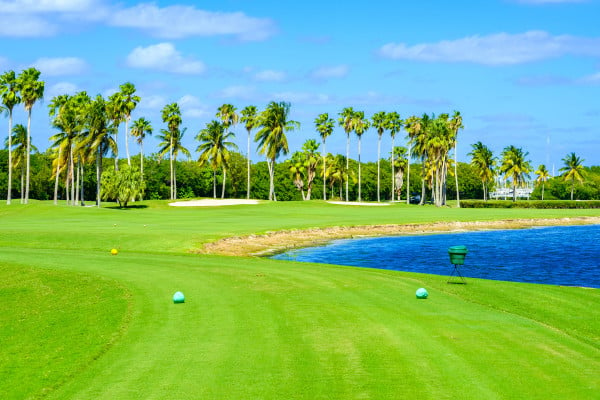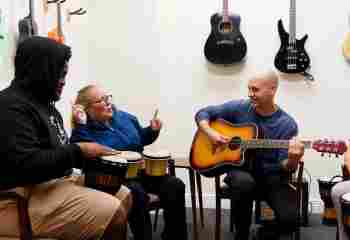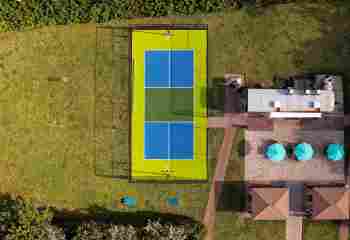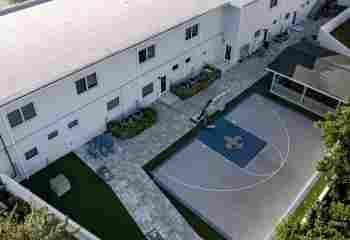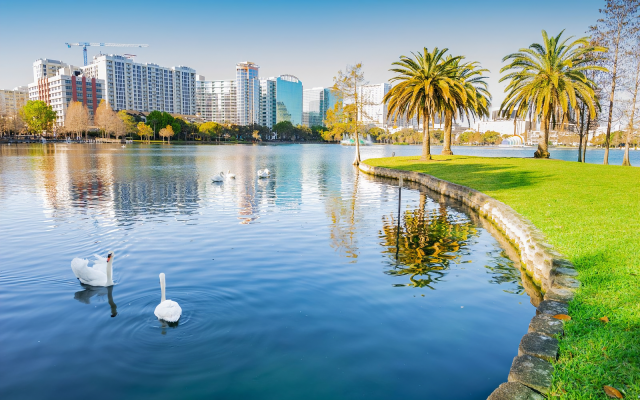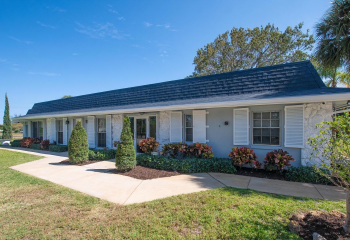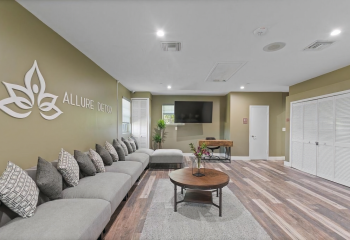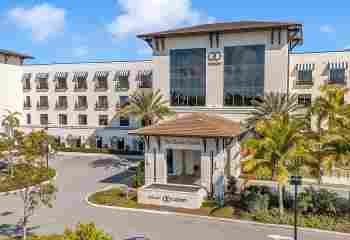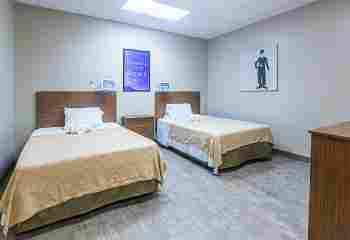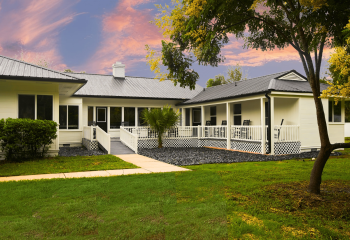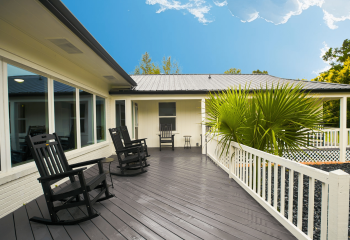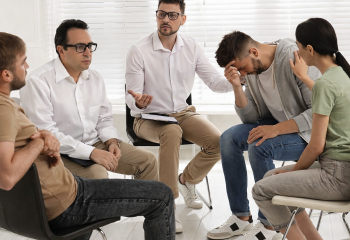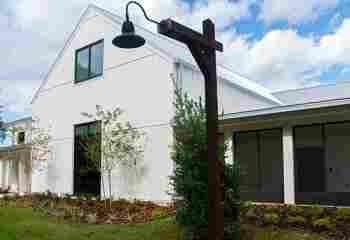More About Rehabs for Marijuana Addiction
What Is Marijuana?
Marijuana refers to the dried flowers, leaves, buds, and stems that are obtained from the cannabis sativa plant(1). The two main species of the cannabis plant are cannabis sativa and cannabis indica. The plant contains more than 100 chemical compounds known as cannabinoids, with delta-9-tetrahydrocannabinol (THC) and cannabidiol (CBD) being the most well-known.
People use marijuana in different ways, which include:
- Smoking marijuana in joints (when rolled in cigarette paper), blunts (when rolled in cigar paper), pipes, or bongs(1).
- Inhaling vapor through vaporizers/vape devices(1,2).
- Drinking beverages like tea brewed with marijuana(3).
- Marijuana edibles like cookies and brownies, which are infused with marijuana extracts(1,3).
Marijuana can have a wide range of potency levels, with stronger forms typically coming from female varieties of the plant(1). Concentrated resin form, which can be smoked or eaten, is also high in potency. Using resin is becoming more common among those who use marijuana(1,3).
Also referred to as weed, pot, grass, ganja, and Mary Jane, marijuana is both medically and recreationally legal in certain parts of the U.S, with some American states only allowing medical use. In some places, marijuana is still entirely illegal. Always be aware of and comply with local laws and regulations regarding marijuana use.
Effects of Marijuana
The effects of marijuana can vary based on several additional factors, including how much of it is being used, the potency of it, and how often use is occurring(4,5):
Short term, marijuana use can produce several effects, including:
- Relaxation.
- Euphoria.
- Altered time perception.
- Heightened mood.
When marijuana is used chronically, or long-term, effects can include(6,7):
- Attention and memory deficits.
- Reduced ambition.
- Onset of mental health conditions such as depression and anxiety.
- Severe cyclic nausea and vomiting, known as cannabinoid hyperemesis syndrome.
- Increased risk of misusing other addictive substances
- Increased risk of impaired memory, learning, and impulse control in adolescents
Any type of marijuana use, whether short or long-term, can cause potentially adverse effects, such as(3,8,9):
- Impaired body movements.
- Mood changes.
- Severe nausea and vomiting.
- Impaired thinking and problem-solving abilities.
- Poor memory.
- Hallucinations (you see, feel, or hear things that aren’t there) and/or delusions (believing things that aren’t true) when marijuana is taken in high doses.
- Increased risk of psychosis, especially in those who use marijuana chronically and in high doses.
- Respiratory problems, such as a higher risk of lung infections or chronic cough.
- Heart problems, such as increased heart rate, which can raise the risk of a heart attack.
It is important to note that there are unknown consequences associated with high potency marijuana use, a trend that is becoming more common. Researchers do not fully know yet how higher concentrations of the drug will impact the mind and body.
Does Marijuana Cause Withdrawal?
Withdrawal can occur when a person who is dependent on a substance suddenly cuts down or stops using it. Marijuana withdrawal is not typically dangerous. According to the National Institute on Drug Abuse, most people who are chronic marijuana users tend to experience mostly mild withdrawal symptoms when they stop using it(3).
Rehab for Marijuana Misuse and Addiction
Marijuana addiction is very treatable. After detoxing (if necessary), you’ll begin therapy to get to the root of your addiction while learning coping skills to manage cravings. Treatment for marijuana misuse or addiction ranges in levels of intensity, therefore allowing you to find the level of care that best meets your needs. These levels of care include the following:
- Inpatient treatment: You will reside in a treatment center or facility that offers 24/7 monitoring and where the average stay is anywhere between 28 days to several months.
- Partial hospitalization program (PHP): You can continue to live at home, however you will meet several times a week (5-7 days on average) for a full day.
- Intensive outpatient program (IOP): Like PHP, you can continue to live at home, but you may only spend a few days (approximately 3-5) per week at the facility for several hours at a time.
- Outpatient (OP): Outpatient treatment affords you the opportunity to continue working, going to school, etc. while still receiving treatment. Usually, outpatient treatment requires you to spend 1-2 days per week at the facility for treatment.
At all levels of care, you can work with a licensed professional who’s experienced in marijuana addiction and who can help guide you through the healing process. They will provide you with appropriate tools, techniques, and support tailored to your specific needs. You may engage in common evidence-based therapies such as:
- Cognitive behavioral therapy (CBT) to learn how to replace unhealthy thought patterns with more affirming ones.
- Contingency management (CM) provides positive reinforcement, such as rewards or incentives, for maintaining abstinence from marijuana.
- Relapse prevention counseling to learn techniques to manage addiction cravings and other symptoms.
- Motivational interviewing to explore the reasons why you want to recover and use that purpose to motivate change.
Can You Relapse on Marijuana?
Yes, it is possible to relapse on marijuana. If this happens, talk to your doctor, reach out to the treatment center you attended, or seek professional treatment. You may choose to participate in programs that focus on relapse prevention planning along with skills-building and evidence-based therapies.
Relapse isn’t a failure, but instead a normal part of the recovery process. Viewing relapse as such can motivate you to reach out for help when it occurs.
Questions to Ask Your Provider
If you’re looking for marijuana treatment, a great place to start is with your primary care doctor. They can refer you to a substance use rehab to start your recovery. When speaking with your provider, consider asking these questions:
- What are the benefits/risks of the different types of treatment available?
- Are there any specific medical or psychiatric assessments I should do before starting treatment?
- What does relapse prevention planning look like?
- Can treatment address any co-occurring disorders that I have?
- Does insurance cover treatment?
How Can I Find Support?
- Rehabs for Marijuana
- Telehealth Provider
- Talk to a supportive friend or family member
- Talk to your primary care physician
Sources
- National Institute on Drug Abuse. (2020, July). Cannabis (marijuana) research report: What is marijuana?
- Substance Abuse and Mental Health Services Administration. (2021). Key substance use and mental health indicators in the United States: Results from the 2020 National Survey on Drug Use and Health (HHS Publication No. PEP21-07-01-003, NSDUH Series H-56). Rockville, MD: Center for Behavioral Health Statistics and Quality, Substance Abuse and Mental Health Services Administration.
- National Institute on Drug Abuse. (2019, December). Cannabis (marijuana) DrugFacts.
- Centers for Disease Control and Prevention. (2020, October 19). Addiction (marijuana or cannabis use disorder).
- Centers for Disease Control and Prevention. (2021, June 11). Marijuana and public health: Frequently asked questions.
- National Institute on Drug Abuse. (2019, December 24). Cannabis (marijuana) drugfacts.
- National Institute on Drug Abuse. (2020, July). Cannabis (marijuana) research report.
- National Institute on Drug Abuse. (2020, July). Cannabis (marijuana) research report: What are marijuana’s effects?
- Centers for Disease Control and Prevention. (2020, October 19). Marijuana and public health: Poisoning






